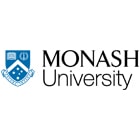- اخبار و مقالات
- Find usIDP AustraliaIDP BahrainIDP BangladeshIDP CambodiaIDP CanadaIDP ChinaIDP EgyptIDP GhanaIDP Hong KongIDP IndiaIDP IndonesiaIDP IranIDP JordanIDP KenyaIDP KoreaIDP KuwaitIDP LebanonIDP MalaysiaIDP MauritiusIDP Middle EastIDP NepalIDP New ZealandIDP NigeriaIDP OmanIDP PakistanIDP PhilippinesIDP Saudi ArabiaIDP SingaporeIDP Sri LankaIDP Taiwan, ChinaIDP ThailandIDP TurkeyIDP UAEIDP VietnamIDP Corporate
- Social
- فارسی
- Where we operate
- Courses
- Scholarships
- IELTS
- About IDP
- Arrival services
- Arrival services
- Money transfer
- Student health cover
- Student banking
- Accommodation
- اخبار و مقالات
- Find us
- Find us
- Find nearest IDP offices
- IDP Australia
- IDP Bahrain
- IDP Bangladesh
- IDP Cambodia
- IDP Canada
- IDP China
- IDP Egypt
- IDP Ghana
- IDP Hong Kong
- IDP India
- IDP Indonesia
- IDP Iran
- IDP Jordan
- IDP Kenya
- IDP Korea
- IDP Kuwait
- IDP Lebanon
- IDP Malaysia
- IDP Mauritius
- IDP Middle East
- IDP Nepal
- IDP New Zealand
- IDP Nigeria
- IDP Oman
- IDP Pakistan
- IDP Philippines
- IDP Saudi Arabia
- IDP Singapore
- IDP Sri Lanka
- IDP Taiwan, China
- IDP Thailand
- IDP Turkey
- IDP UAE
- IDP Vietnam
- IDP Corporate
- Social
- LANGUAGE_SWITCHER
- آموزش IDP /
- کالج ها و دانشگاه ها /
- Australia /
- Monash University /
- Bachelor of Arts and Bachel...

Bachelor of Arts and Bachelor of Criminology - History
At MONASH UNIVERSITY
Location
Australia
صلاحیت
Dual Degree
شهریه ها
AUD39000
(2025)
مدت زمان
4 Year(s)
پذیرش بعدی
03 March 2025
امتیاز ورود
6.5
آیلتسCOURSE_INFO
The major is structured to develop in you a range of skills and knowledge. You will learn critical reading, research, and writing skills at every level of the major, but each year puts one aspect of the historian’s toolkit front and centre. Two gateway units provide an engaging, wide-ranging introduction to the past across a broad chronological sweep. In semester 1, you are exposed to the study of the modern era, and in semester 2, they dive deeper into the pre-modern past. In first year, we focus on learning source analysis—how to ask questions of historical evidence, understanding the limits of the evidence, and the circumstances that created it. Second-year cornerstones cover core thematic concerns of historical inquiry across the pre-modernmodern divide. In second year, we build on these skills by delving more deeply into historiographical concerns, i.e., how historians have written about the past. Majors will gain a deeper appreciation of historical methodology through inquiry into debates among historians. With the capstone, you have the opportunity to pursue a major research project of your own design. Our emphasis is on the craft of writing, while developing advanced skills in source analysis and historiography.
- کمک هزینه تحصیلی کمک هزینه ی تحصیلی
- دوره های کارآموزی
نیازمندی های ورود به Monash University
GCE A Level 9
International Baccalaureate Diploma Programme -28
IELTS - 6.5 (Reading - 6.0, Listening - 6.0, Writing - 6.0, Speaking- 6.0)
Paper-based TOEFL – 550 (Test of written English - 4.5)
TOEFL iBT -79 (Reading- 13, Listening- 12, Writing: 21, Speaking- 18)
ددلاین اپلیکیشن
تاریخ ددلاین مشخص نیست با یک مشاور IDP صحبت کنید برای اطلاعات بیشتر
Further information
If you aren't eligible for the above entry requirements, you might ant to explore pathway options at Monash University. If you want to find out more, speak to our counsellors.
رتبه جهانی
58th / 1250
رتبه جهانیدانش اموزان ما چگونه فکر می کنند؟
هنوز نظری در مورد این موسسه دریافت نکرده ایم
پیشنهادات برای شما
- کارشناسی
- Australia
- DEADLINE: 15 Dec 2024
- نوع کمک هزینه تحصیلی: Fee waiver/discount
Your action plan
گام 1
Shortlist your courses
Choose the best three courses you’re most likely to pursue.
گام 2
Check your eligibility
Get an instant in-principle offer for courses with the IDP FastLane tag.
گام 3
Apply through IDP Live
Fill out the form once and use it to apply to multiple courses.
اپلیکیشن فست لین IDP چگونه کار می کند؟
با "پذیرش مشروط" FastLane ظرف چند دقیقه می توانید در مورد پذیرفته شدن تان در دانشگاه با خبر شوید
یک موسسه یا دوره را انتخاب کنید
یک پروفایل آکادمیک ایجاد کنید
درخواست خود را برای "پیشنهاد مشروط" ارسال کنید
موسسه(ها) مورد نظر تان ظرف مدت چند دقیقه تصمیم خود را به شما اعلام خواهد کرد
برای درخواست پذیرش با کمک یک مشاور آماده شوید




